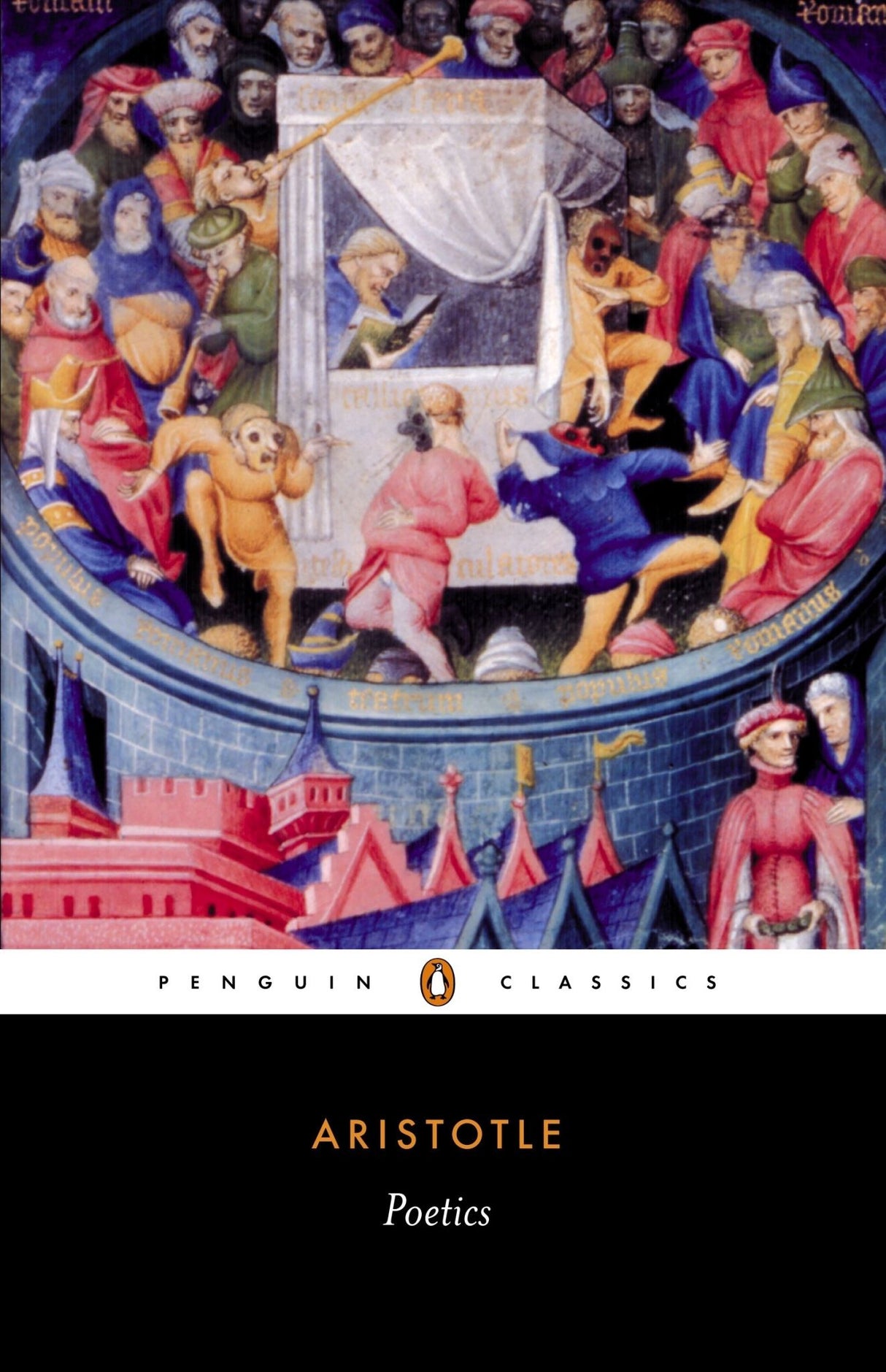SKU:
PR548826
Poetics
$33.95
Unit price
/
Unavailable
Discover the profound insights of Aristotle's Poetics, an essential text for students of Greek theatre and literature. This brand-new Penguin Classics edition, translated by Malcolm Heath, offers a captivating exploration of classical Greek tragedy, making it an indispensable resource for scholars and literature enthusiasts alike. With 144 pages of riveting content, this trade paperback from Penguin UK, published in 1996, beautifully captures Aristotle’s analysis of tragic elements such as plot and character, language, and spectacle. Delve into Aristotle's influential concepts like mimesis, hamartia, and katharsis, which have shaped literary criticism for centuries. Heath’s lucid translation not only preserves the richness of the original text but also enhances accessibility for modern readers. The extended introduction provides an in-depth examination of key themes and offers recommendations for further reading, making this edition an invaluable addition to any bookshelf. Whether you are a student, educator, or literature lover, this edition of Poetics will deepen your understanding of drama and its intrinsic relationship with human emotion. Enjoy free shipping on this remarkable volume that is essential for any comprehensive study of ancient philosophy and literary theory. Please note, combined shipping with other products is not available for this item.
Condition: BRAND NEW
ISBN: 9780140446364
Format: Trade paperback (UK)
Year: 1996
Publisher: Penguin UK
Pages: 144
Description:
Essential reading for all students of Greek theatre and literature, Aristotle's Poetics remains equally stimulating for anyone interested in literature. This Penguin Classics edition is translated with an introduction and notes by Malcolm Heath.
In his near-contemporary account of classical Greek tragedy, Aristotle examine the dramatic elements of plot, character, language and spectacle that combine to produce pity and fear in the audience, and asks why we derive pleasure from this apparently painful process. Taking examples from the plays of Aeschylus, Sophocles and Euripides, the Poetics introduced into literary criticism such central concepts as mimesis ('imitation'), hamartia ('error') and katharsis, which have informed serious thinking about drama ever since. Aristotle explains how the most effective tragedies rely on complication and resolution, recognition and reversals, while centring on chaaracerts of heroic stature, idealised yet true to life. One of the most perceptive and influential works of criticism in Western literary history, the Poetics has informed serious thinking about drama
ever since.
Malcolm Heath's lucid translation makes the Poetics fully accessible to the modern reader. It is accompanied by an extended introduction, which discusses the key concepts in detail, and includes suggestions for further reading.
Aristotle (384-22 BC) studied at the Academy of Plato for 20 years and then established his own school and research institute, 'The Lyceum'. His writings, which were of extraordinary range, profoundly affected the whole course of ancient and medieval philosophy and are still eagerly studied and debated by philosophers today.
If you enjoyed <
This product has FREE shipping however combined shipping for other products is not available with this item. Please allow up to 10 days for shipping.
Condition: BRAND NEW
ISBN: 9780140446364
Format: Trade paperback (UK)
Year: 1996
Publisher: Penguin UK
Pages: 144
Description:
Essential reading for all students of Greek theatre and literature, Aristotle's Poetics remains equally stimulating for anyone interested in literature. This Penguin Classics edition is translated with an introduction and notes by Malcolm Heath.
In his near-contemporary account of classical Greek tragedy, Aristotle examine the dramatic elements of plot, character, language and spectacle that combine to produce pity and fear in the audience, and asks why we derive pleasure from this apparently painful process. Taking examples from the plays of Aeschylus, Sophocles and Euripides, the Poetics introduced into literary criticism such central concepts as mimesis ('imitation'), hamartia ('error') and katharsis, which have informed serious thinking about drama ever since. Aristotle explains how the most effective tragedies rely on complication and resolution, recognition and reversals, while centring on chaaracerts of heroic stature, idealised yet true to life. One of the most perceptive and influential works of criticism in Western literary history, the Poetics has informed serious thinking about drama
ever since.
Malcolm Heath's lucid translation makes the Poetics fully accessible to the modern reader. It is accompanied by an extended introduction, which discusses the key concepts in detail, and includes suggestions for further reading.
Aristotle (384-22 BC) studied at the Academy of Plato for 20 years and then established his own school and research institute, 'The Lyceum'. His writings, which were of extraordinary range, profoundly affected the whole course of ancient and medieval philosophy and are still eagerly studied and debated by philosophers today.
If you enjoyed <
This product has FREE shipping however combined shipping for other products is not available with this item. Please allow up to 10 days for shipping.
Delivery Information
Delivery Information
All of our products are stocked in New Zealand, and shipped from our Auckland warehouse, this means no unexpected import fees or taxes.
Payment & Security
Payment methods
Your payment information is processed securely. We do not store credit card details nor have access to your credit card information.


